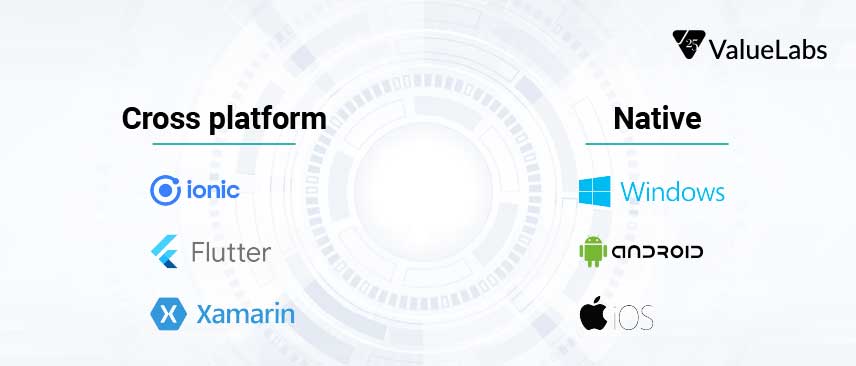Debates about cross-platform vs. native mobile apps are complex because people tend to be highly opinionated about both. Supporters of native apps argue that they’re usually smaller and more performant than those built with cross-platform toolkits. While this might seem fair, this is not all there is to it. Let’s delve deep into both sides of the argument for a bigger picture.

Brief History of Cross Platform
Cross-platform has been around for a while, but it’s still a hot topic. Many cross-platform toolkits have entered the market in the past to dominate the browser-friendly sector. Let’s have a peek into the past.

Today, there are various mobile-friendly cross-platform toolkit options to choose from, like .NET MAUI, Flutter, and React Native. Some replicate the native OS look and feel, while others provide a pixel-perfect experience across devices and platforms.
Cross-platform: Single source to the rescue?
There are numerous operating systems available today, each having unique requirements. Native apps exhibit utmost performance and compatibility with the target OS and can be developed with the best possible tooling for that platform. The target operating systems (such as Android, iOS, etc.) provide a seamless experience that encourages developers to build for respective platforms. Creating a Windows app with the Universal Windows Platform’s great tooling support will likely result in a performant app with a smaller footprint. With these benefits, shouldn’t we all opt for native mobile app development?
The answer remains – ‘It depends’.
The truth is that we have two choices – maintain more apps or fall back on a single source toolkit with some compromises. Using a cross-platform, single-source toolkit won’t be as perfect as the native toolkit. But the choice of software is just about trade-offs. We need to make decisions based on reality, not the ideal world.
The Decision-Making Process
The final decision always comes down to two factors – resources and time. If you have both, the choice is easy:
- Build natively
- Hire the best developers for each platform to reliably produce quality apps

If not, focus your time and resources on making one single source, bug-free app that works seamlessly across different targeted platforms.
Things to Consider
A common misconception about cross-platform apps is that the UI is not at par with the look and feel of native apps. Toolkits such as .NET MAUI and React Native use native controls, making it easy to achieve the native look and feel. You can attain a consistent look and feel for the apps running on multiple devices and platforms using cross-platform toolkits.
Wrap-up
We do not intend to support or oppose cross-platform over native apps, as both have their own place.
Cross-platform development is often a good choice for simpler apps with limited platform-specific requirements, tight timelines, and cost considerations. On the other hand, Native app development is preferable when you require maximum performance, deep integration with platform capabilities, or extensive access to device features.
However, if you’d like to save yourselves the trouble of making all these decisions, and leave the heavy lifting to the experts – you can Click here to learn more about how we at ValueLabs have enabled several pioneers in the cross-platform & native app development space to become future-ready!
Source
Gartner survey – Future of multi-experience application development